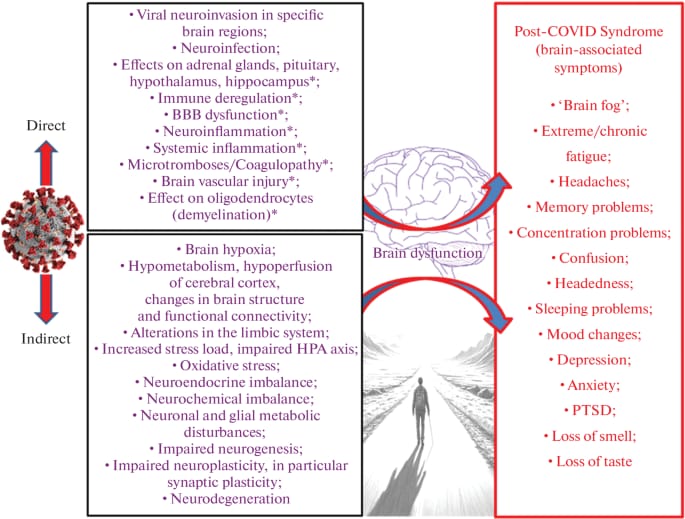By N. V. Gulyaeva et al.
Source springer
腦霧迷思,自殺傾向?
Impaired brain functioning in PCS (post COVID condition or long COVID) is associated with a number of neurological and psychiatric symptoms including ‘brain fog’; extreme and chronic fatigue; headaches; headedness; cognitive dysfunction, such as concentration problems, short-term memory deficits, general memory loss, a specific decline in attention, language and praxis abilities, encoding and verbal fluency, impairment of executive functions and psychomotor coordination; confusion; compromised sleep; loss of smell and/or taste; mood changes, anxiety, depression, and PTSD.
COVID-19 is capable of eliciting persistent measurable neurocognitive alterations predominantly significant in the areas of attention and working memory.
Patients with PCS may demonstrate brain hypometabolism, hypoperfusion of the cerebral cortex and changes in the brain structure and functional connectivity.
Common elements are hypometabolism in the insula and caudate nucleus, reduced hippocampal volumes, and subarachnoid hemorrhages; white matter hyperintensities are prevalent in both PTSD and PCS.
Postmortem studies of human hippocampus and data received from experimental animal models have revealed alterations in neurogenesis, dendritic state and immune response, as well as high levels of apoptosis and neuroinflammation [caused by SARS-CoV-2 infection.
COVID-19 actually activates microglia in the hippocampus and causes a cytokine storm leading to suppression of hippocampal neurogenesis.
Read more click here

